- Home
- Martin O'Brien
The Wind and the Rain
The Wind and the Rain Read online
The Wind and the Rain
Martin O'Brien
"Every man's life ends the same way. It is only the details of how he lived and how he died that distinguish one man from another."
Ernest Hemingway
"The driving people of the Gypsies ... remained a harmful foreign body in German culture. All attempts to tie the Gypsies to the soil and to get used to a sedentary lifestyle have failed.
Even draconian punishments could not dissuade them from their erratic life and their attachment to unlawful acquisition of assets. Despite multiple mixing, their offspring have become Gypsies again with the same characteristics and habits that their ancestors already possessed."
Alfred Dillmann, 1905 Gypsy Book, Munich Gypsy Centre
Farewell Ljubljana
Monday, 24 June 1985
A man with a bubbling white scar across half his neck tells me we need to leave now. He speaks to me in French and his voice has a texture reminiscent of the sound of walking on crushed stones.
“You must hurry,” the man next to him says. He is also speaking French.
Five minutes earlier I had been in bed in fitful sleep, dreaming of being trapped inside a burning coffin. Each time the flames touched my body I would wake up with a start and check my bed wasn’t on fire. I would settle down, drift away and the cycle would repeat. In the middle of one of these fiery dreams Dad woke me up and said I had to leave my home. He told me these men were going to keep me safe because of what I did.
“I don’t understand,” was all I could answer, momentarily puzzled. The post-sleep amnesia faded and I remembered what I did and this all began to make sense. My stomach lurched as I stood up and I took a few seconds to allow my insides to settle.
I dressed as if someone had switched my mind and body to autopilot mode. I put on white denim shorts and my favourite t-shirt, my blue one with the Rocky III poster with Rocky Balboa and Clubber Lang printed on it. I went to the bathroom and after relieving myself I looked in the mirror. My eyes were stinging, tears streaming down my pink cheeks.
“Please Ana, hurry now,” Dad poked his head into the bathroom, “We have already put your luggage in the car.”
“Where’s Mum?”
“She’s in the kitchen, she’s making you some food to take with you,”
I headed downstairs which is where I first clearly see the two men who had barged into my bedroom telling me to go to their car. They are stood in the open doorway at the front of the house. They are both older than my parents. The man with the neck scar is big and menacing with dark eyes, the other guy is small and wiry, ghostly white hair with a kind face.
I walk past them to go to the kitchen to see my mum. The younger, brooding one grabs my left arm with his giant, hairy hand. I push him off and I can only weakly whisper: “Mum”. He stares at me but I refuse to break his gaze despite my watering eyes.
The man relents and releases my arm. He allows me to enter the kitchen but he looks around at the other man with a look of severe annoyance. I don’t care. Mum has her back to me and is packing all kinds of foods into a brown bag. I say her name again but she doesn’t turn around.
I walk up behind her and put my arms around her waist and lean my face on her warm shoulder, her sobbing echoes around our basic kitchen.
“I’m sorry Mum,” I say quietly.
She doesn’t speak or turn around. She simply hands me the bag and continues sobbing. It could be the saddest experience of my life. It is due to me that this bizarre scene is unfolding but it isn’t my fault and to be truthful I am not sorry for what I have done. I turn round and head to the front door where my father is waiting for me. He doesn’t know what to do with his fidgety hands.
“What time is it, Dad?” I ask, the sun has not risen yet but there is a hint of the morning beginning to brighten. The outline of the other houses and satellite dishes in the neighbourhood have a strange dark orange glow.
“It’s half past four, princess,”
“Where are they taking me?”
“They will keep you safe, they are good people,”
“The big one hurt me,” I show him my arm which has a dirty red tint to it where the hefty oaf grabbed me. Dad doesn’t look at my arm. Instead, he cups my face in his hands.
“He is trying to protect you. We can’t protect you here now. They will look after you,”
“I still don’t understand, when will I come home?”
“I don’t know, my sweet princess, I don’t know. You need to be strong,” He is in tears now. My tears have ceased, the shock taking over my body. Dad is forcing himself to speak again. He is struggling so much, witnessing it is making me so uncomfortable. In the distance I can hear the faint sound of sirens.
“We love you,” he finally says and pulls his hands away from my face and stuffs them awkwardly into his trouser pockets, “You…you need to go now with these men. They are family,”
Dad stares at his feet. A shattered figure shivering despite the warmth. An arm gently touches my shoulder from behind. I turn and it is the menacing man again, startling me. I see the white scar gouging a line around half of his neck. I shift my gaze to his dark, large eyes. He doesn’t say anything this time but guides me out of the house and into the back seat of a rundown car. The siren sounds are rising in volume. A voice inside my head is shouting that they are coming for me.
It’s a typical mid-summer night in Ljubljana, with its unrelenting, stifling humidity. The darkness makes it difficult to make out any of the features of our house, save for the little chimney. I don’t want to leave my beloved home in Bežigrad. The light from the open kitchen door illuminates us and all I can see is my father with his head still bowed. My mother hasn’t come to the door, resulting in a pain I can barely describe. A withering sense of loss that makes my whole body ache.
The younger man drives the car away from my house, where I have lived since I was six years old. An ominous feeling grows telling me that I won’t see the tiny place again. An immediate wave of nausea strikes my belly but I force myself to hold it in, I have to be strong like my dad said.
The noise from the police cars sounds scarily close by. I sit in the middle seat in the back and force myself to look straight ahead. I glimpse at the rearview mirror and the younger man is looking at me. Examining me might be a more accurate description.
“We’re heading west, which way from here?” the menacing man asks me in French, maintaining his scrutiny of me, “Quickly, please,”.
“You need to head south towards the train station, then on to the main road which is called Tivolska cesta. Then follow that and it should go round the city centre and take you right onto Tržaška cesta. Follow that and you’re out of the city.”
“Back towards Sežana?”
“Yes, is that where we’re going?”
“We have friends there who can help us,”
The car trundles past Tivoli Park and another wave of nausea sweeps over me. Mum and Dad would take me there when I was younger. I loved running through the tall trees pretending I was a soldier, using a sturdy branch as a machine gun. We’d always end with an ice cream at the cafe near the tennis courts. Vanilla for Dad, strawberry for Mum and chocolate for me. The longing for ice cream is even stronger than the need to see my parents.
Before I can prevent it, the tears start flowing gently down my cheeks. My sobbing increases in intensity but I try not to make any noise so the men don’t see me. Finally, as the long road takes me away from my town I regain a tiny portion of my composure but the tears won’t stop. This is so annoying! Come on Ana, be strong right now!
“Are you OK back there?” it is the old man speaking now, the voice of a smoker, grizzly and deep, “are you comfortable?”
“I’m fine,” is all I can say, if I start talking now I will break down like a stupid child.
“You should be comfortable, you are riding in a Fiat Argenta. This is one of the finest examples of Italian automotive engineering. Reliable, yet with the grace of Gina Lollobrigida,”
I remain silent. I don’t know anything about cars. No one in my family owns a car, never mind a top-notch Italian vehicle.
“My name is Janko and my friend here is Gunari,” the old man has turned around now to look at me. The sun is beginning to creep above the fields and I can see his face. He must be seventy years old, he has bright blue eyes and very white hair. His finely lined face reminds me of Dad’s leather chair at home.
“You are safe here with us but we need to get out of Yugoslavia today. How far is it to Sežana, Ana?”
“I don’t know, I think it’s about eighty kilometres,”
“Good, we should be crossing the border by about seven hopefully. Can you understand our French?”
“Yes, I studied languages at school - it’s what I wanted to do at university,” I find myself speaking this without realising that is one thing that won’t be happening now. Stomach-churning guilt about what might happen to my parents attacks my insides, sizzling acid around my belly.
“Will my mum and dad be alright?” I say. The old man holds his gaze at me.
“They have made a brave decision for your sake Ana. They will be fine. You need to start thinking about yourself Ana. You have some big choices to make in the next few days that will define you for the rest of your life.”
The journey to Sežana passes by like I’m starring in a film, unsure of where reality begins and ends. The sun is intense, a grubby blood orange hanging in the early morning sky. The trees that line the road make it appear that we’re on a rail and not a road. We pull off the main road and head into the town of Sežana next to the Italian border.
“What time is it?” the menacing man, Gunari asks the old man, Janko.
“Half past six,” comes the response. Gunari begins to speak but then stops himself.
Sežana appears to be a very pretty town, it even has palm trees. The car has pulled up in a side street behind another car, this time a rusting gold Jugo.
“There they are,” Janko says. Gunari exits the car and walks to the driver’s side window and is speaking to someone. About two minutes later he comes back to the Fiat.
“We follow them to the border, they have sorted our exit papers for Yugoslavia.”
“I don’t have a passport,” I say, completely puzzled at the thought that we are about to leave the country. Who on earth are these two men I have ended up with?
“Our friends have arranged for us to pass Yugoslav customs,” Janko replies, “And you happen to be the duty-free gift that we picked up on our trip,” Janko laughs and I am even more baffled.
“But how will they let us into Italy, won’t the border guards stop us?”
“Italy is no problem, corruption is ingrained into their culture. Yugoslavia is a little more complicated,” Gunari says, “We need friends who know the border guards here as they won’t allow people they don’t know through without passports.”
“Understandable, you never know what kind of undesirables try that kind of thing,” Janko says.
“Don’t worry Ana, try and get some sleep,”
Gunari looks around and actually smiles at me, he even looks like he means it. I am actually very tired and whatever adrenalin has kept me awake until now is ebbing away.
A Venetian Romance
Tuesday, 25 June 1985
I wake and my head hurts. A real pounding through my forehead, my brain is surely leaking vital brain-juice. The smell is unfamiliar and I realise I’m still in this car with the two strange men. Two odd men with their incessant chat about nothing!
“Fiat manufacture the best cars in Europe. It’s a fact, Gunari, an indisputable fact,” the older man, Janko, is in the driving seat now. Out of the window, I can only see grey road, low grey barriers and loads of railway tracks out of the left window, to the right scruffy concrete buildings and cranes.
So this is Italy?
It looks damp and washed-out, the opposite of where I’m from in Yugoslavia.
“You talk rubbish Janko, you’ve barely driven anything else,”
“I don’t need to. It’s as good as the day I bought it,”
“You bought it last year,”
“Are you crazy? I’ve owned it for eight years. I had that red Trabant before that, remember? We got it off that guy for three hundred marks, what was his name?”
“I have no idea. I try to forget as many of your friends as I can,”
“The anarcho-syndicalist from Brussels? Portuguese Pierre? I’m sure it was him. Or it could have been his brother...” Janko says. I look at Gunari and he is shaking his head.
The Argenta continues rumbling along the road. A huge train catches us up on the left-hand side and the traffic is intense. None of this is helping my sore head. The only surprise is the train is green and not another shade of grey.
“Where are we?” I sit up and poke my head between the front seats. It’s a wall of grey cloud out of the front window too.
“Ah, our little Dornröschen awakes,” Janko looks around, “My sleeping beauty, we are in Mestre,”
“Where is that?” I say the word ‘Mestre’ in my head, rolling it around. I then try to say it out loud, repeating the word.
Nope, never heard of it.
“Well,” Janko again turns towards me, I wish he’d concentrate on the road, “Imagine you have a horse. At the moment where we are right now, you could describe that as the horse’s arse.”
A horse’s arse? This old man is crazy. Outside of the car, the factory windows are beginning to fall behind us and we heading out onto a bridge. There is a thick, light grey mist hanging over the traffic which leads me to assume that we are over water. Janko and Gurani are smiling at each other.
“I don’t understand anything you say, Janko,” I say, still nonplussed.
“Wait a few minutes,” Gurani has decided to speak at last, “and you’ll see the face of the prettiest horse in the world,”
“You two are mad, are we off to your secret island?” They both laugh and I am even more confused than ever. Last night we were supposed to be off to Italy, are we now in Albania? If the situation wasn’t so ridiculous I would be scared but in all honesty, I’m excited.
“What time is it?” the fog is beginning to lift as we head towards land and the sun is breaking out of the whitening clouds. On the left are some prettier buildings that look like apartments and I can see some little bridges with high steps at their bases which would surely be more efficient for pedestrians if they were flat. What boats would travel down these little streams?
Janko swings the Fiat into a nearby multi-storey car park and parks in one of the nearest spots to the entrance. He parks up and says “We’re here,”
We all get out of the car and the men stride purposefully away out of the car park. I have to break into a little jog to catch up and maintain pace with them. We walk around a corner and a wave of noise hits me, then the aroma.
I have never seen a busier place in my whole life. A large flat expanse filled with people and a ridiculous number of buses and coaches. There must be thousands of people here, more than I’ve seen before in one place. I can hear all kinds of languages - Italian, English, Russian. There are tourists taking photos and old men shouting and selling newspapers as though it was a competitive sport. Buses are constantly whizzing past and I can hear drilling too. I can see at least six different construction sites going on all over the place.
The distinctive smell reminds me of the swimming baths where I would try to hold my breath and rush past the pools of standing water in the changing rooms. Is this the smell of islands? Why would an island smell differently to normal land? It doesn’t smell like this when you walk over the Triple Bridges back home.
>
I realise I’m stood right next to Gunari and he has his arm around my shoulders. Janko joins us and stands in front of us with arms in a welcoming gesture. He spins around like a circus ringmaster.
“Ana, please allow me to welcome you to the jewel of the Adriatic, the floating city, La Serenissima… Venice!” Janko flamboyantly calls out. I look up at Gunari and he is smiling down at me.
“I’ve never seen anything like it,” I say.
“This is Piazzale Roma, it can be a bit of a shock to the system,” Gunari replies.
“There are so many people here, I’m surprised the island doesn’t sink,”
“Come back in a few years,” Gunari says.
“Do you like ice cream Ana?” Janko says.
“I do,” I reply.
“The best ice cream in the world is found in Italy. Let’s get you some lovely Italian gelato and we can have a chat,”
The buildings are tightly compact and the little rivers are everywhere. At every bridge, I stop and watch the boats pass under. A dozen tourists also do the same at every crossing. Many of the boat drivers are singing or shouting abuse at their mates on the banks who respond in kind.
“Those boats you see everywhere, they are called a gondola, or góndoła if you’re a native Venetian. The locals are very proud of their language here. Many common words everyone uses in Europe originated from here: casino, lotto, ciao,”
Janko begins to start saying “Ciao!” to people walking past, many of them reciprocating. Others seem baffled by his exuberant behaviour. He is clearly a strange old man. I’m not sure why he’s hanging out with the mean lump, Gunari.
Yesterday I was cooped up in my room running the past couple of days constantly through my head. Now I am walking around a city I had read about in encyclopedias. Venice has a ruined beauty that I find captivating with its crumbling houses and the tight alleyways between the buildings. You could lose yourself here and never be found which I currently find a very alluring idea.

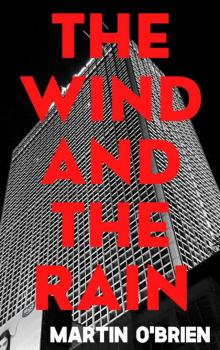 The Wind and the Rain
The Wind and the Rain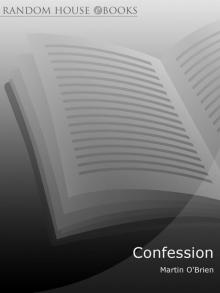 Confession
Confession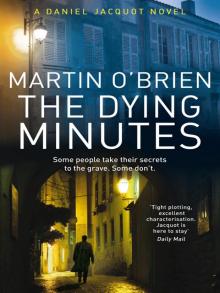 The Dying Minutes
The Dying Minutes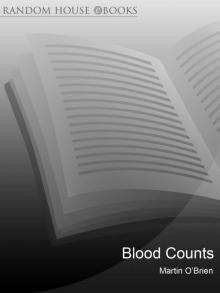 Blood Counts
Blood Counts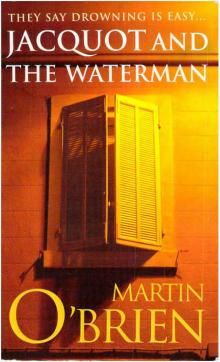 Jacquot and the Waterman
Jacquot and the Waterman